Year 11 Geometry Worksheets
Area and Volume of Similar Shapes (A)
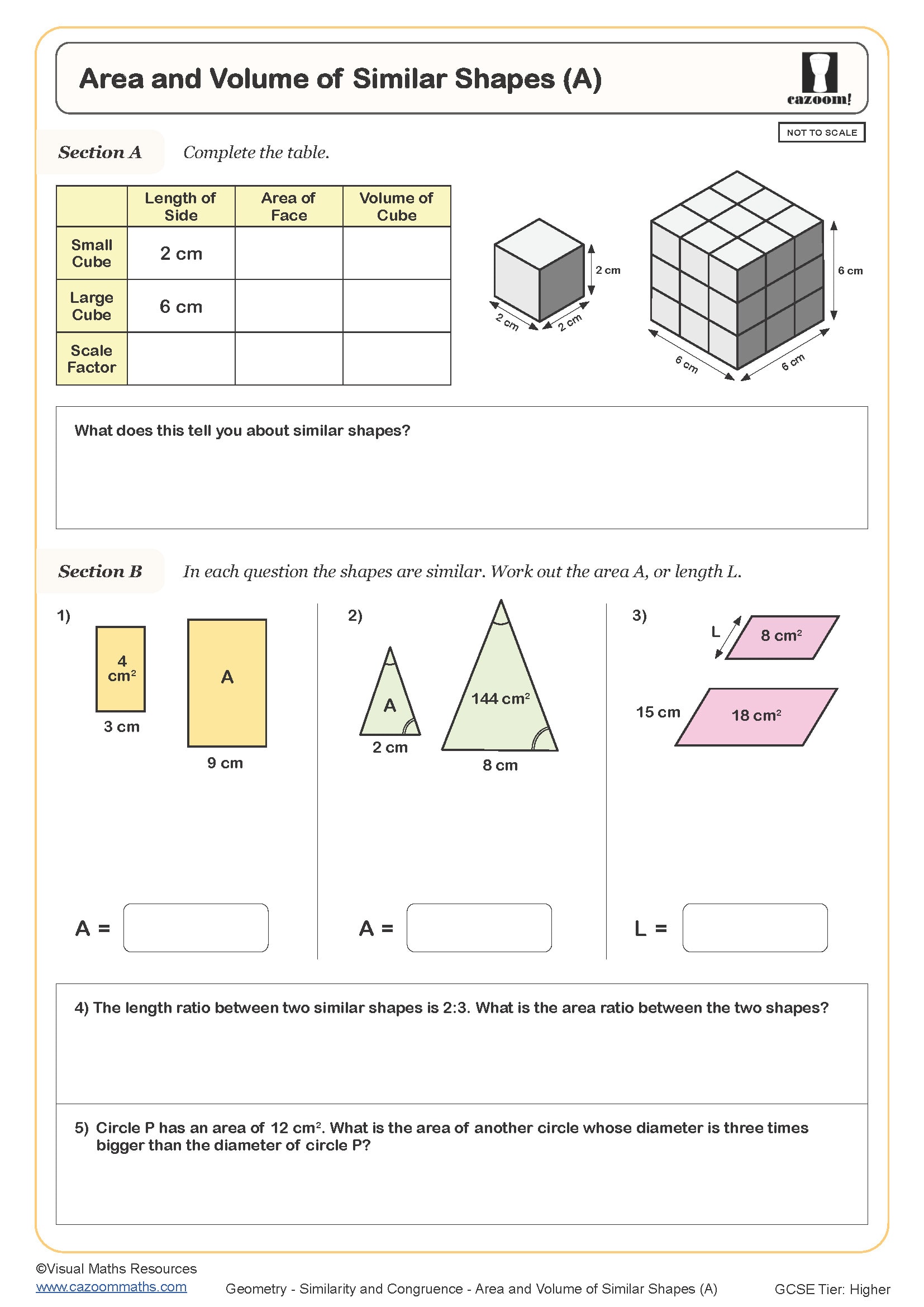
Area and Volume of Similar Shapes (B)
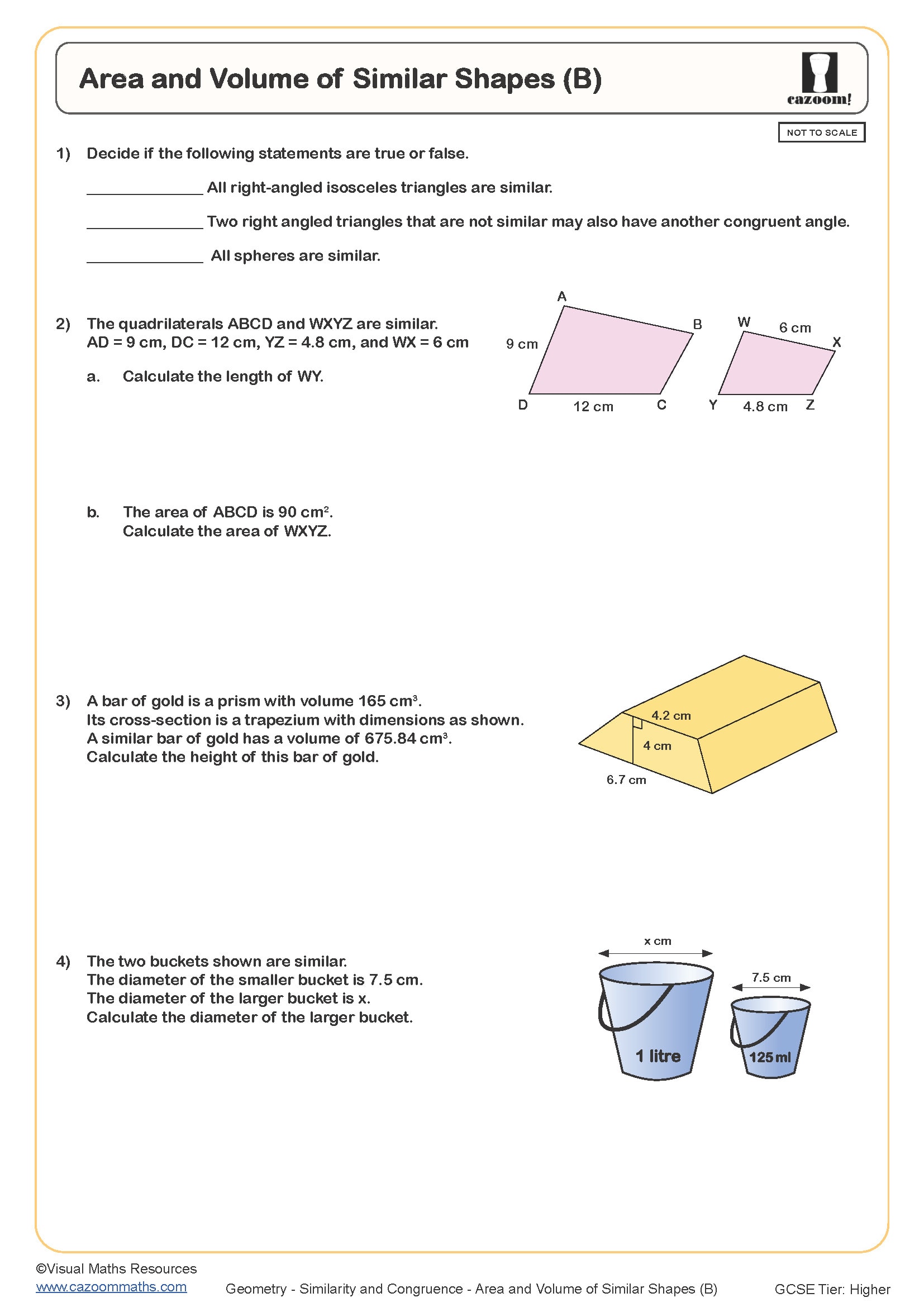
Area and Volume of Similar Shapes (C)
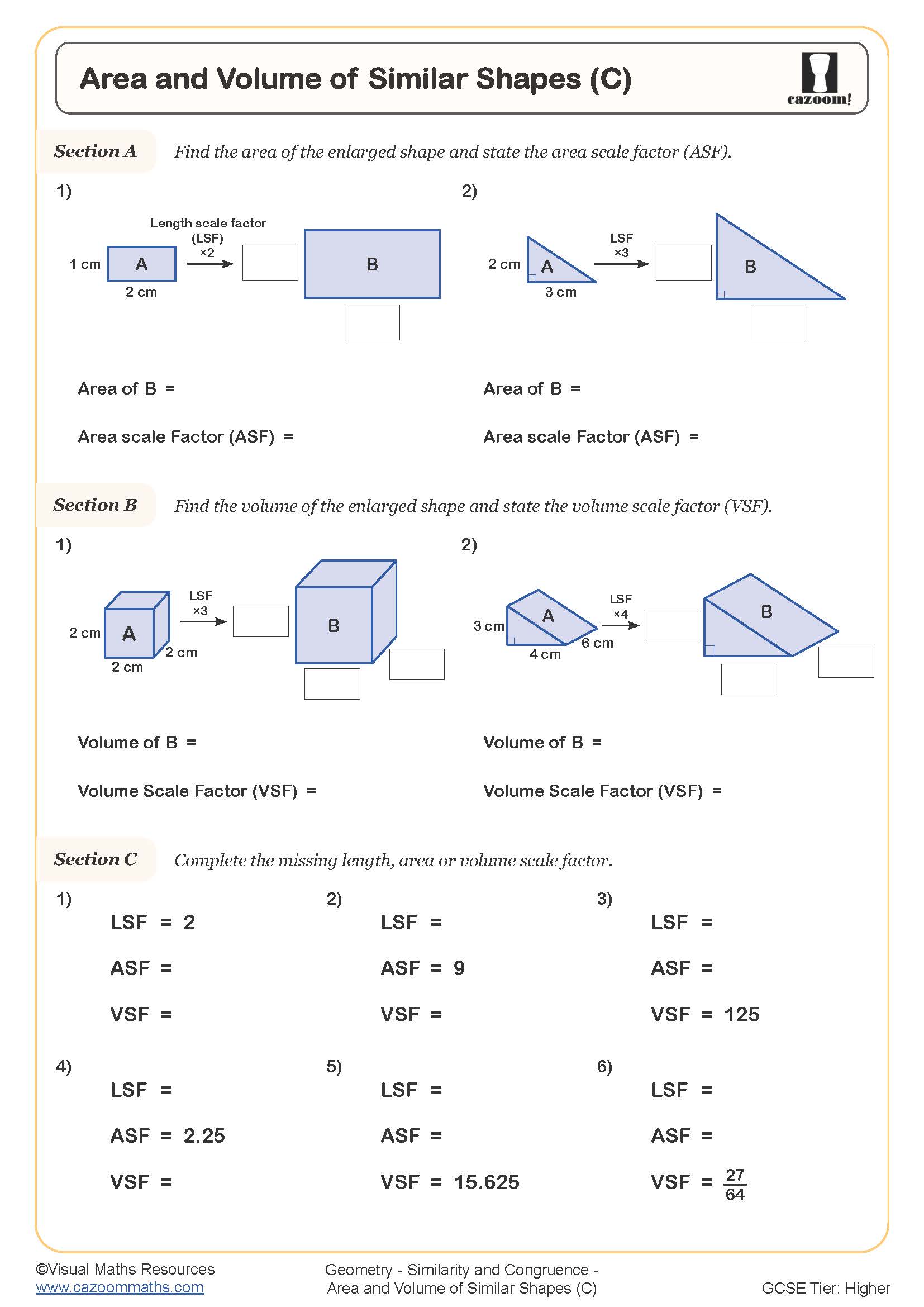
Combining Transformations
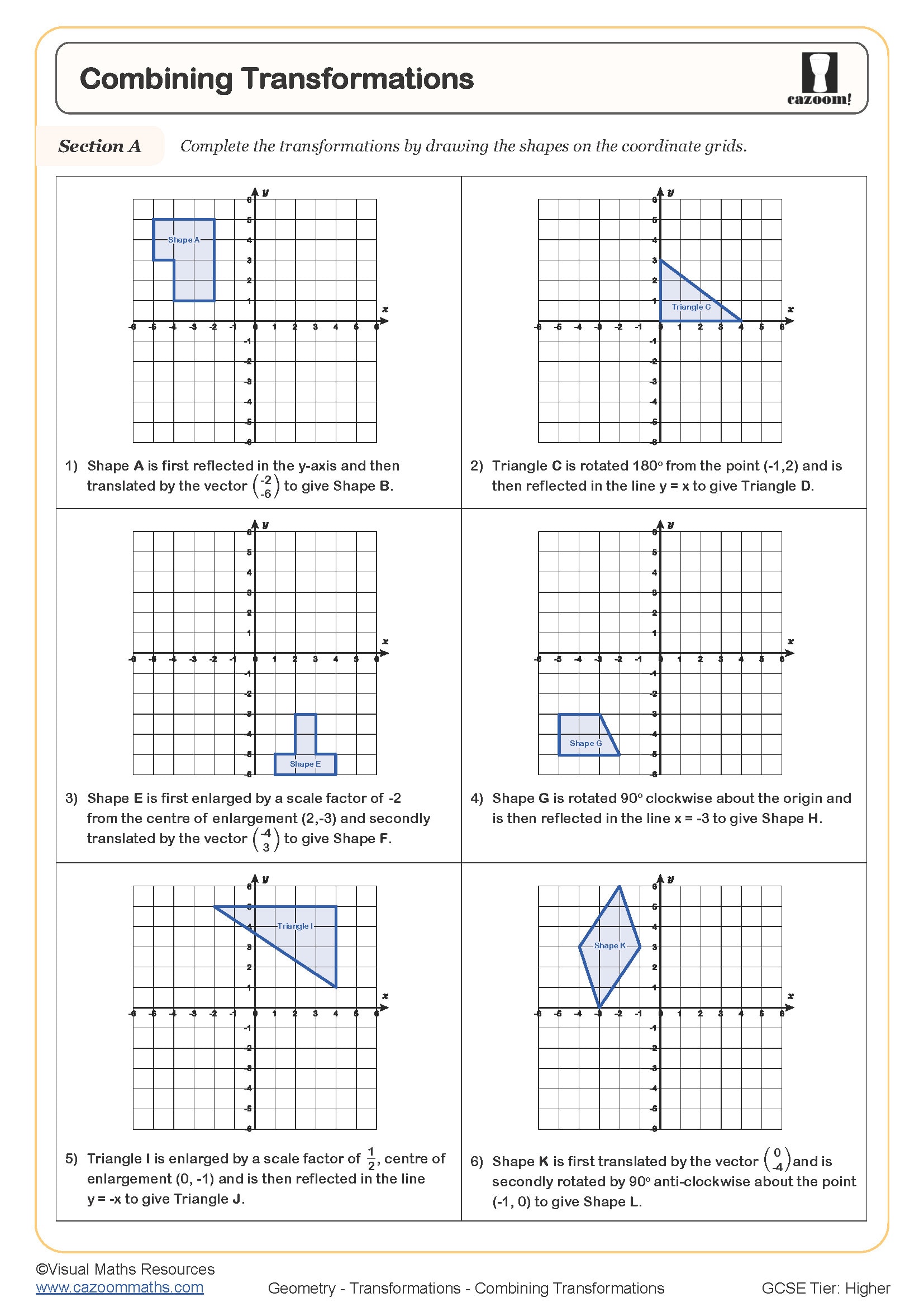
Describing Single Transformations
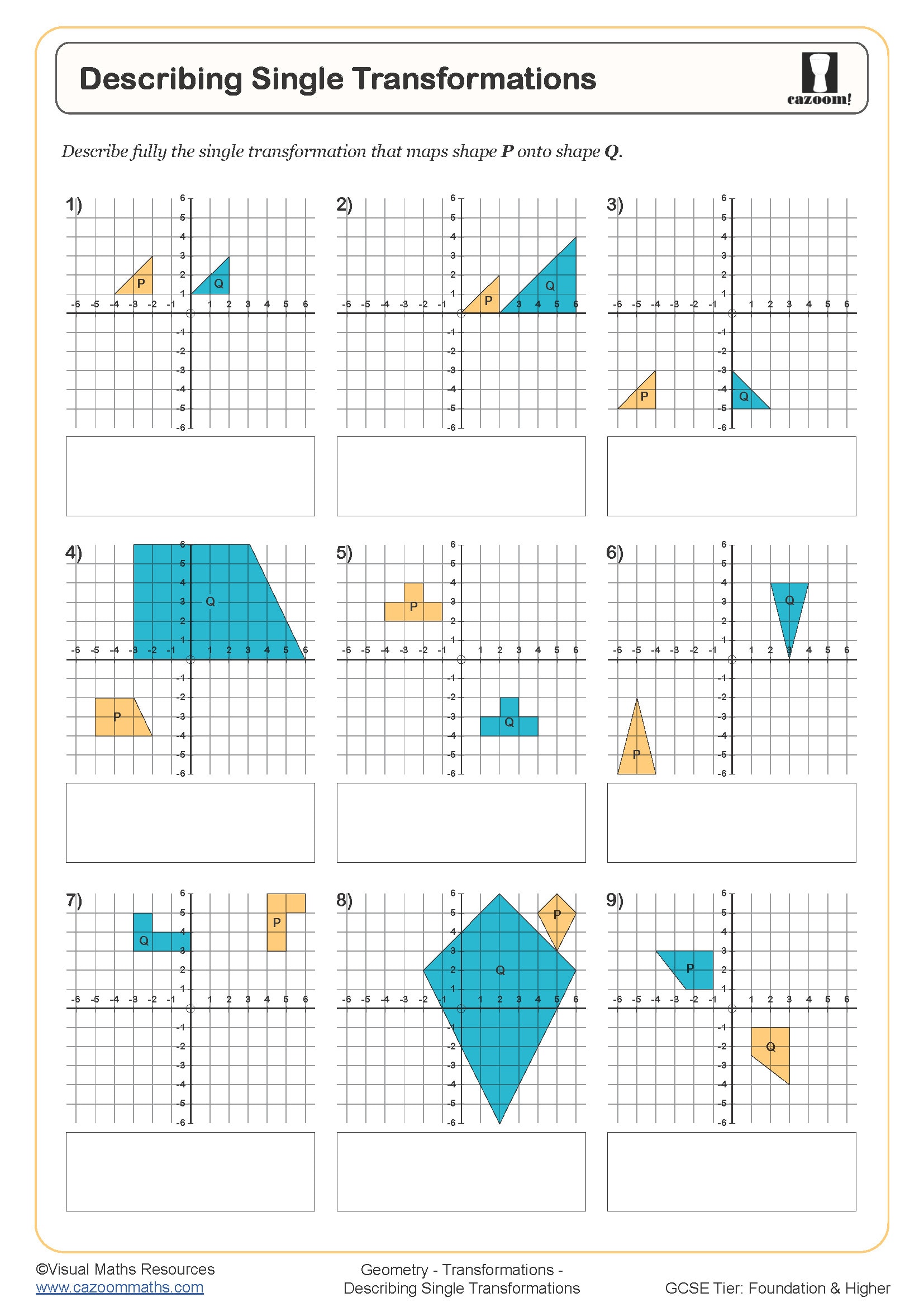
Describing Enlargements (A)
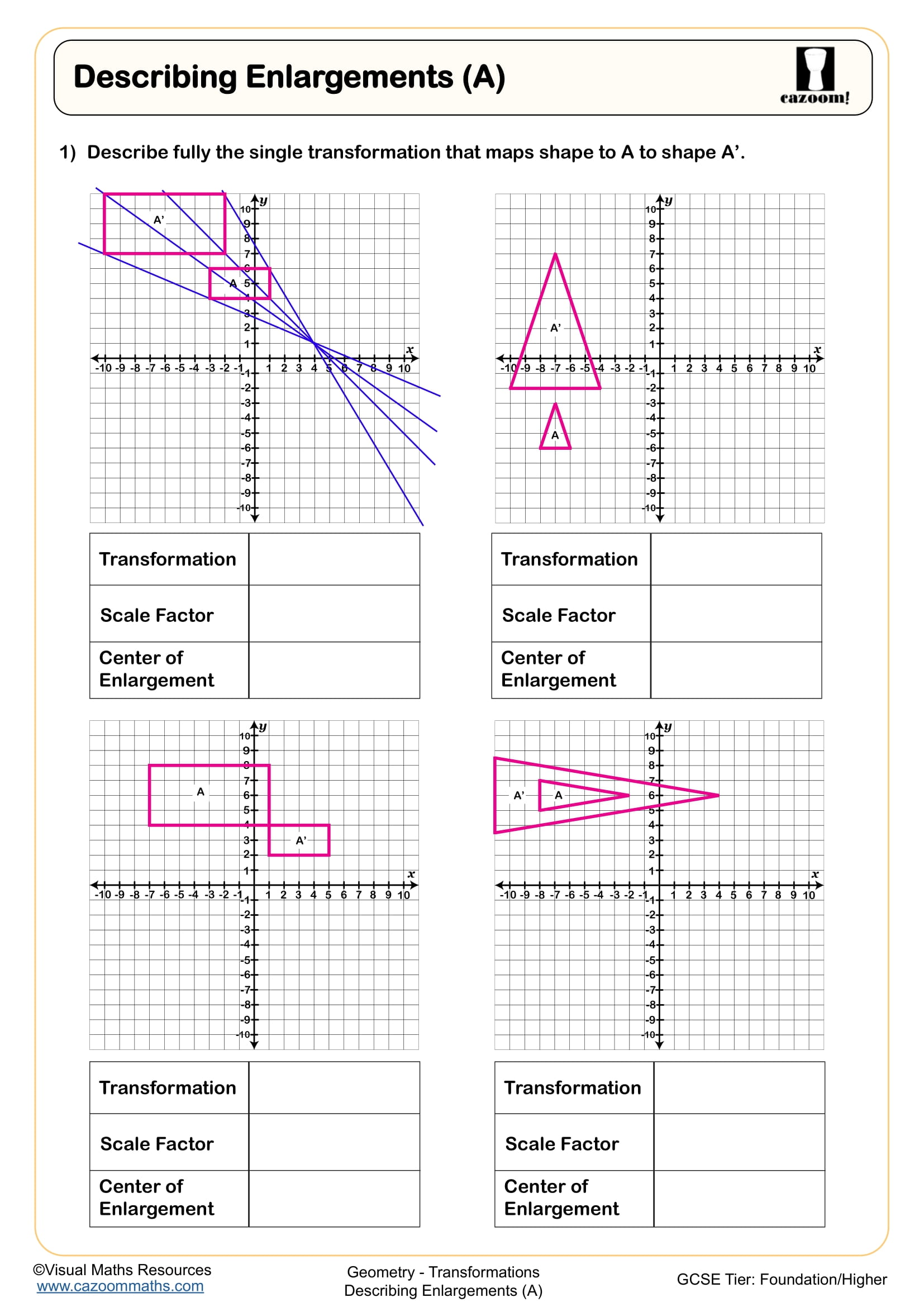
Describing Enlargements (B)
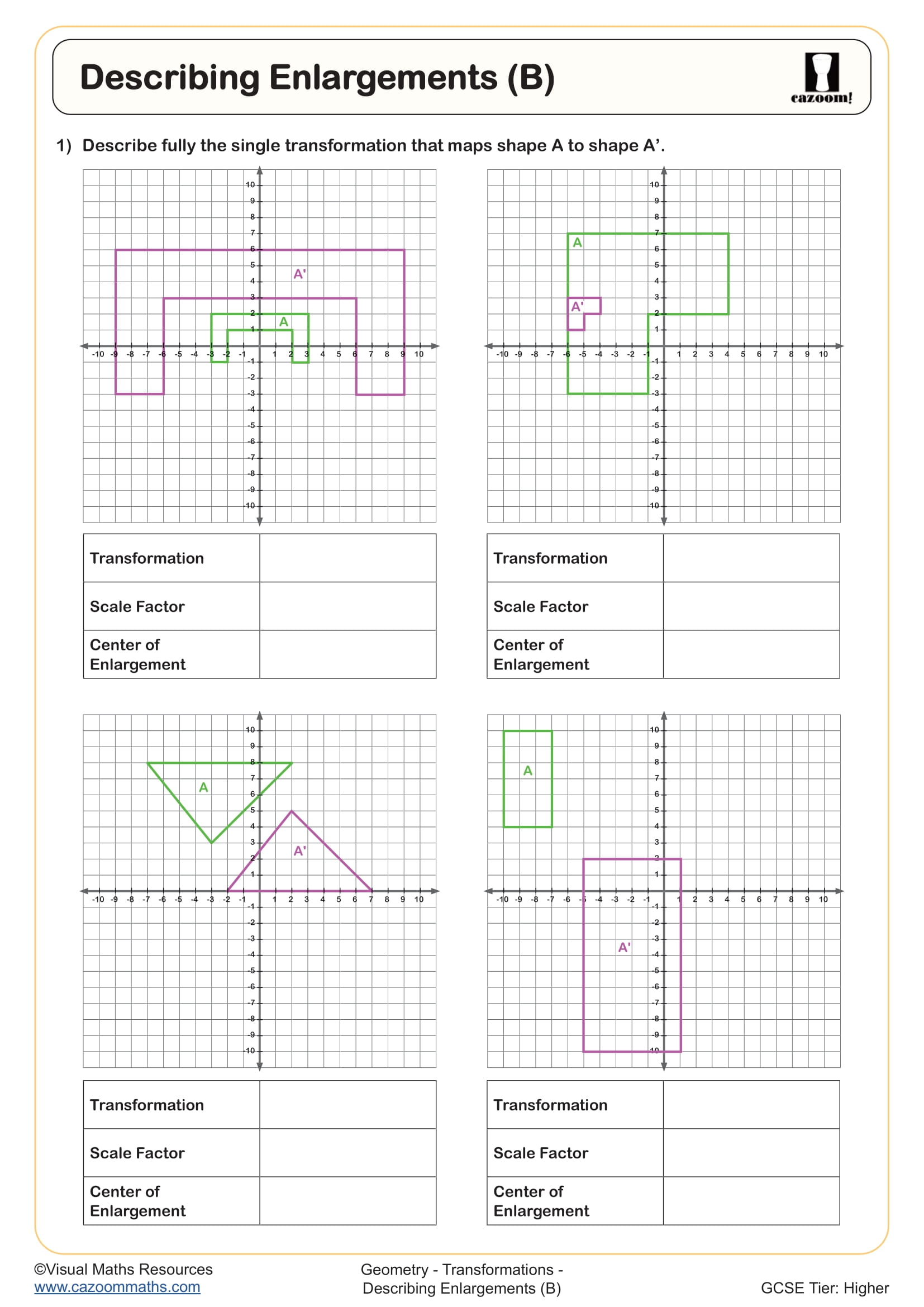
Describing Rotations and Reflections
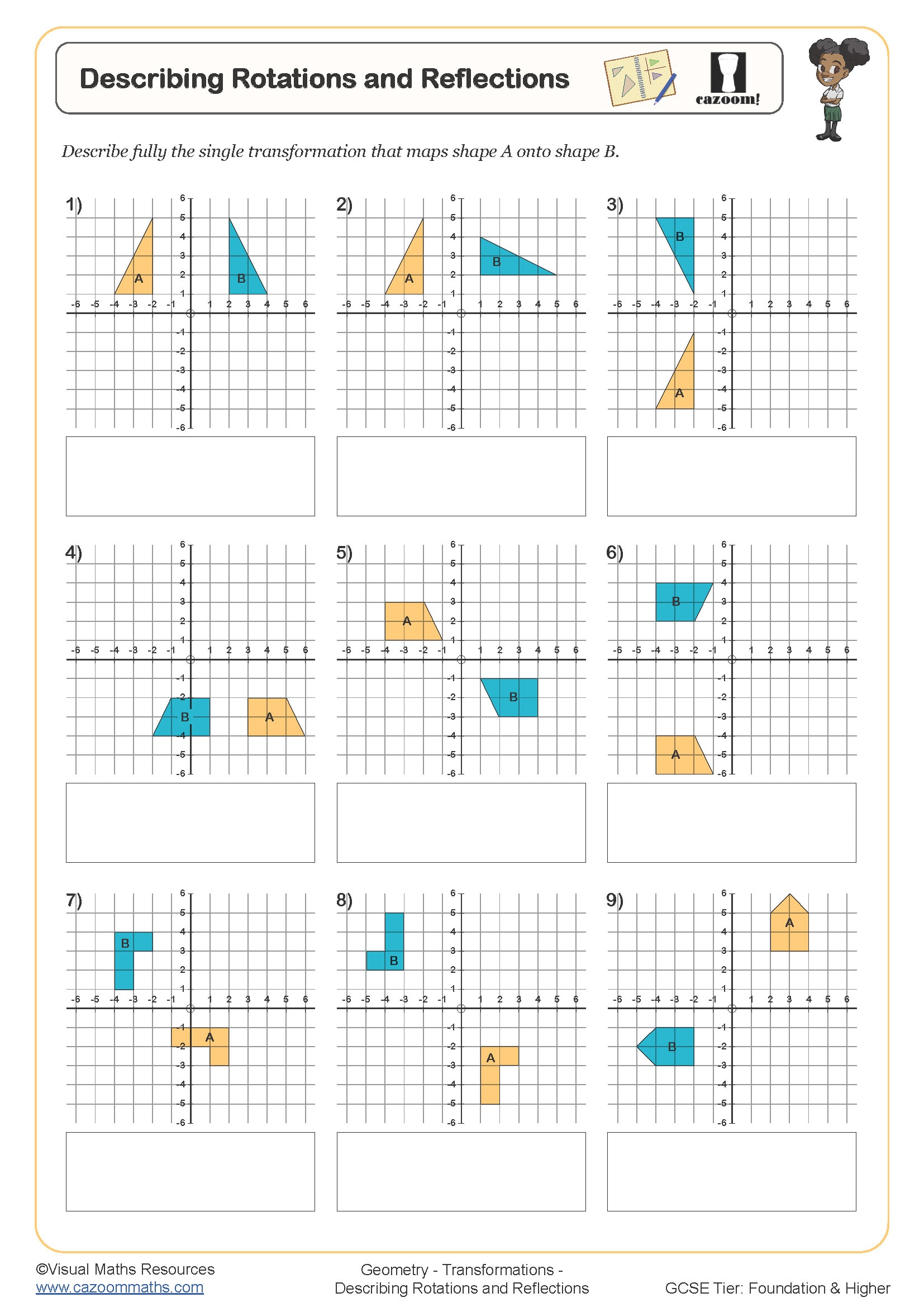
Enlargement (C)
-Worksheet.jpg?w=3840)
Enlargement with Fractional Negative Scale Factors
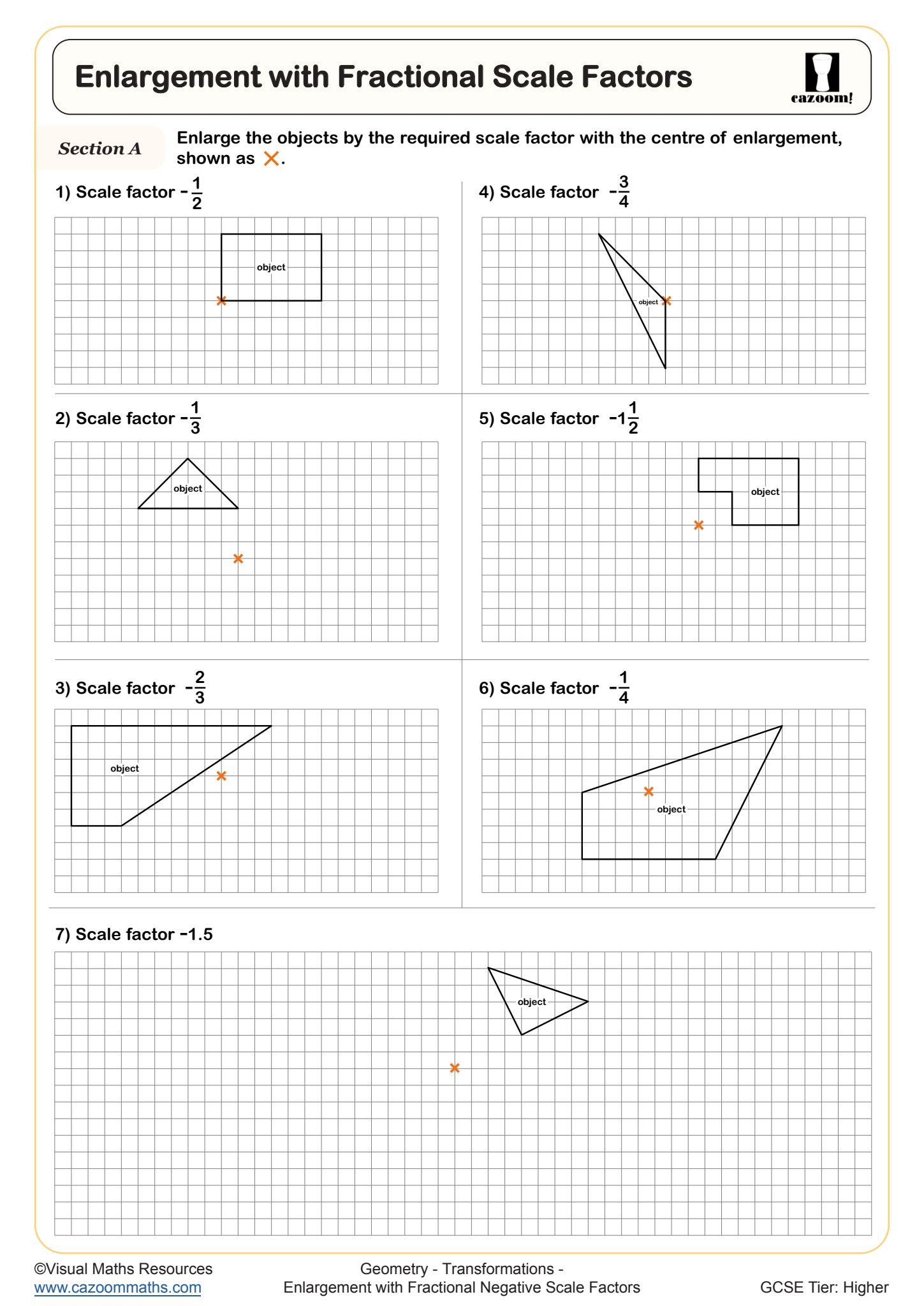
Enlargement with Fractional Scale Factors (A)
-Worksheet.jpg?w=3840)
Enlargement with Fractional Scale Factors (B)
-Worksheet.jpg?w=3840)
Enlargement with Negative Scale Factors
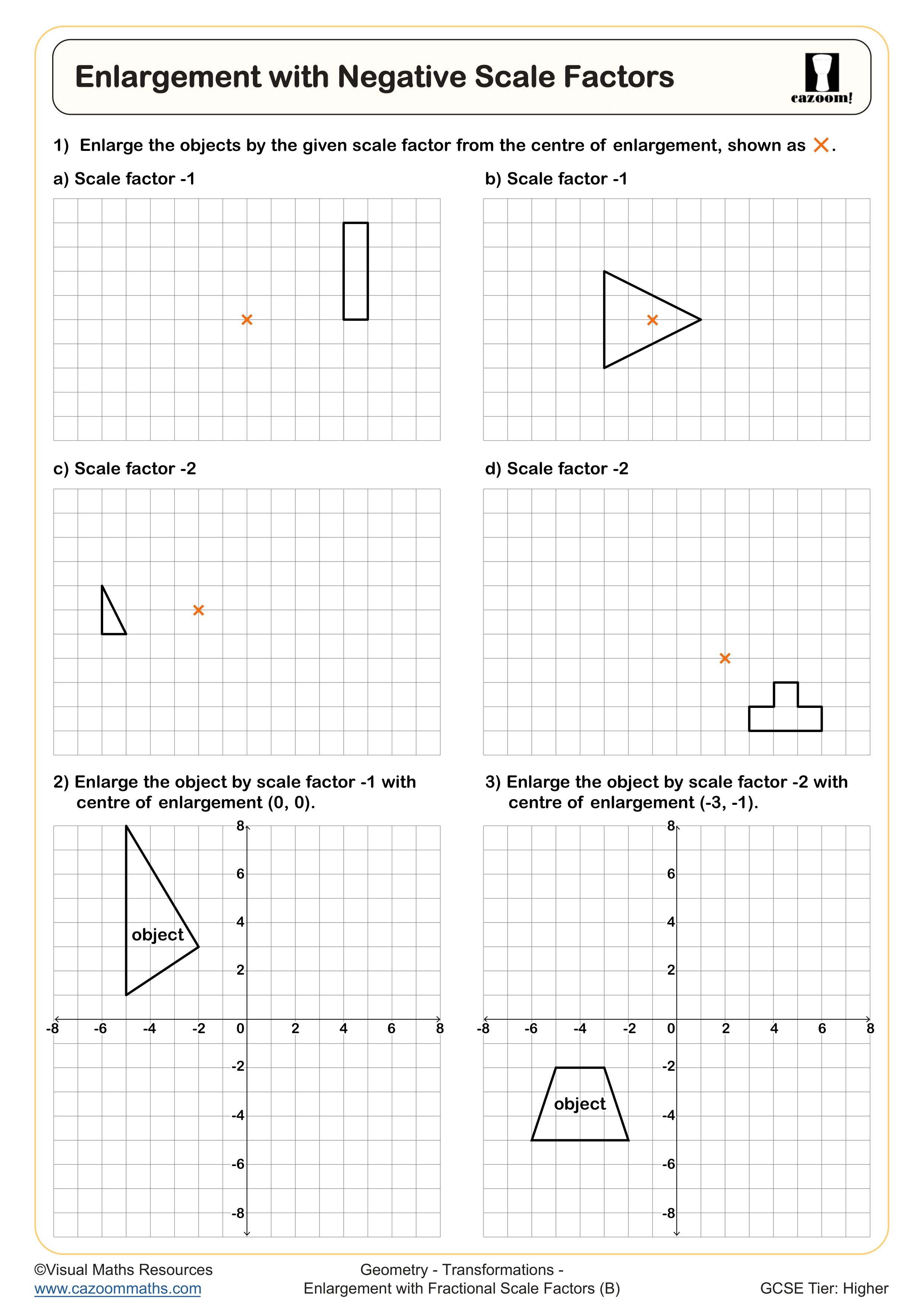
Enlargements on Axes
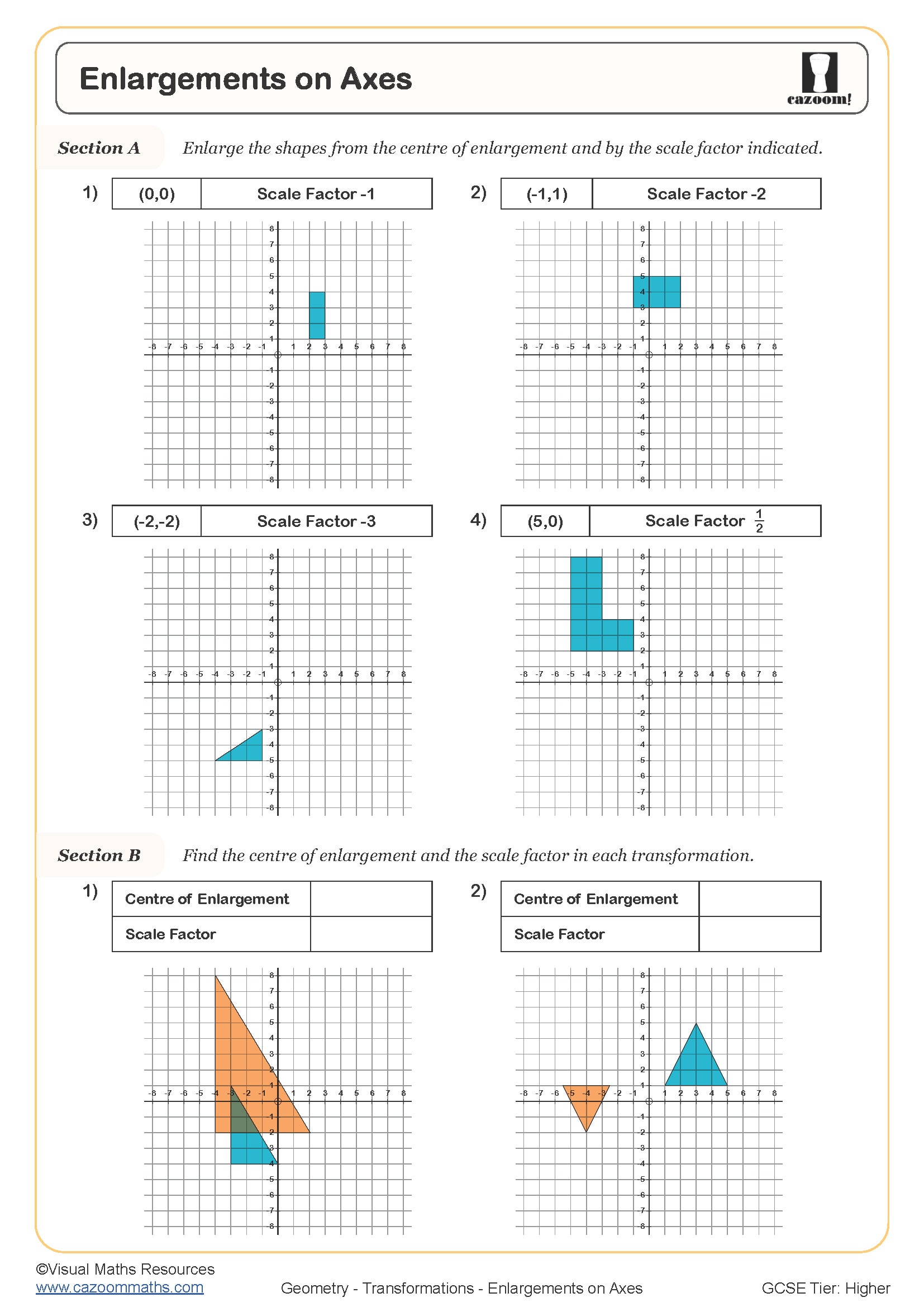
Enlargements Using Column Vectors
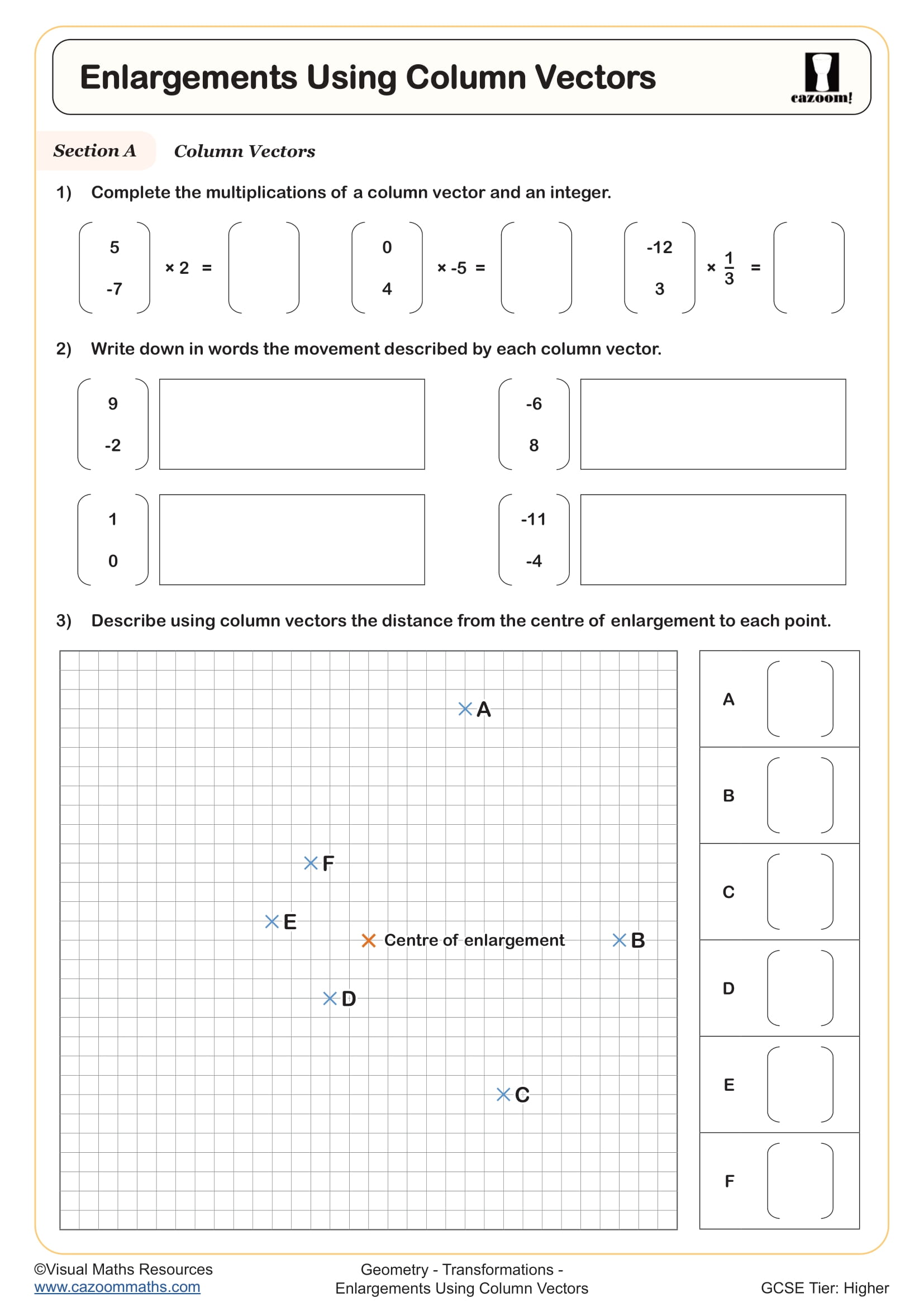
Rotation (C)
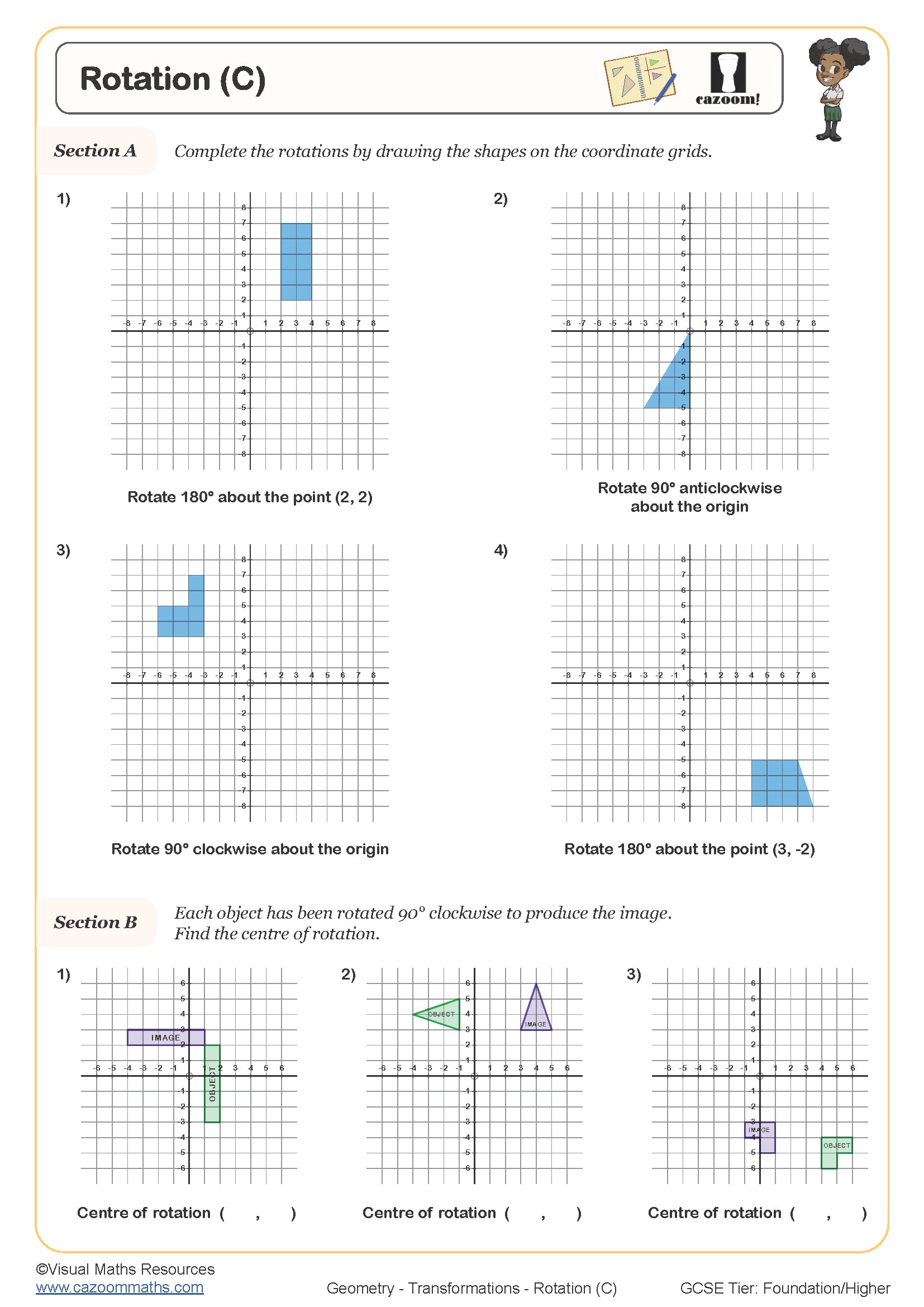
Scale Factors and Centres of Enlargement (A)
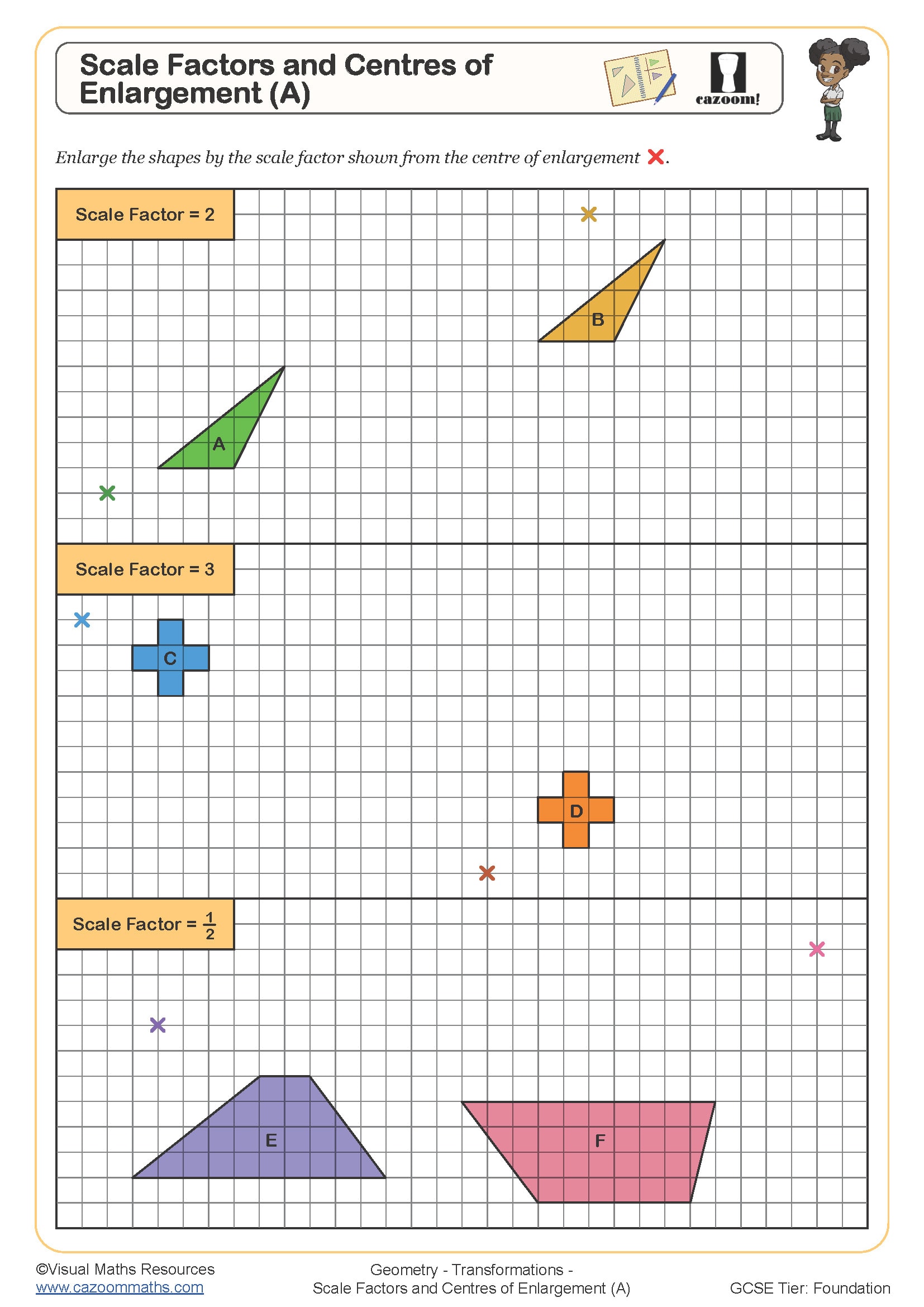
Scale Factors and Centres of Enlargement (B)
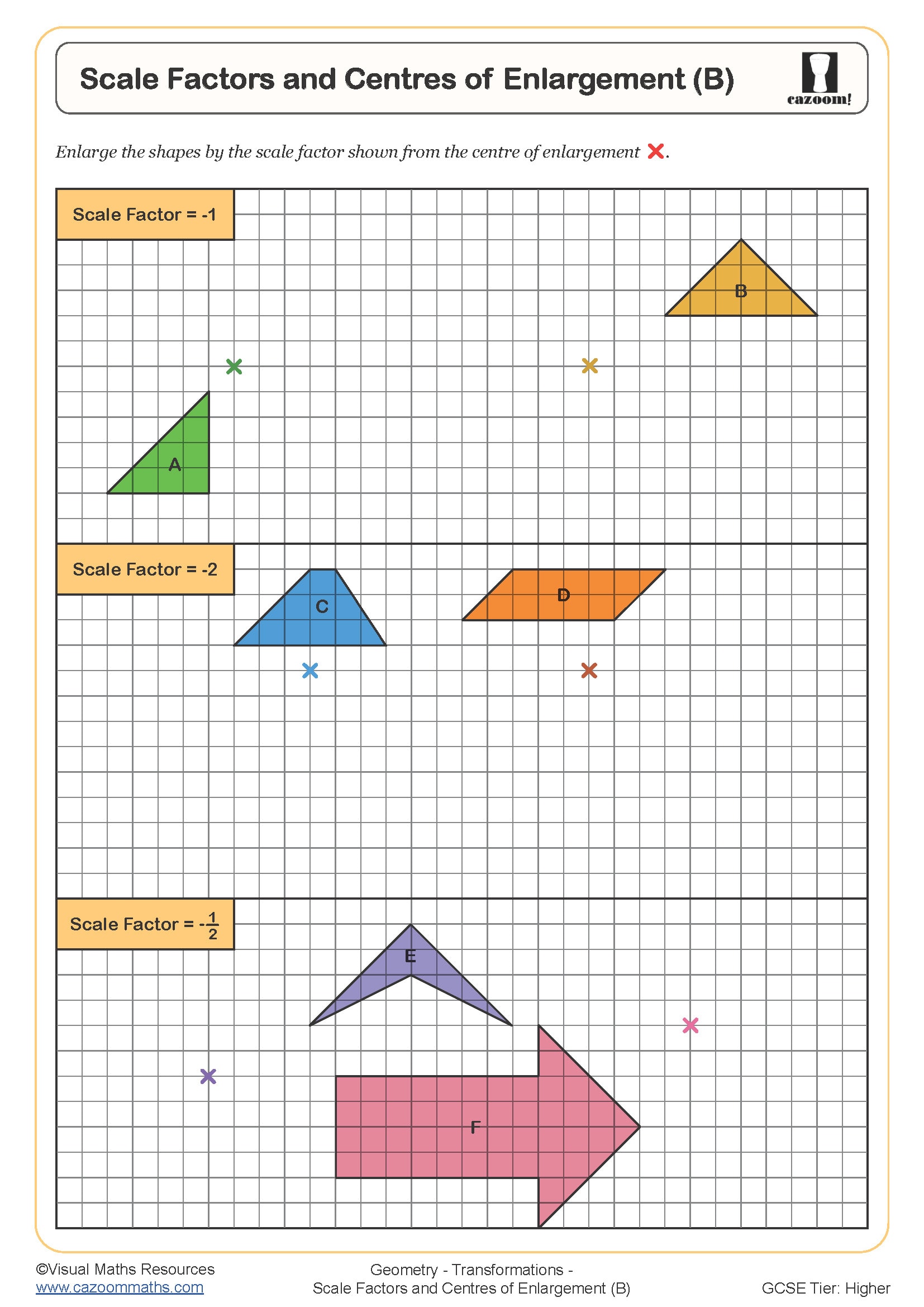
Similar Triangles (A)
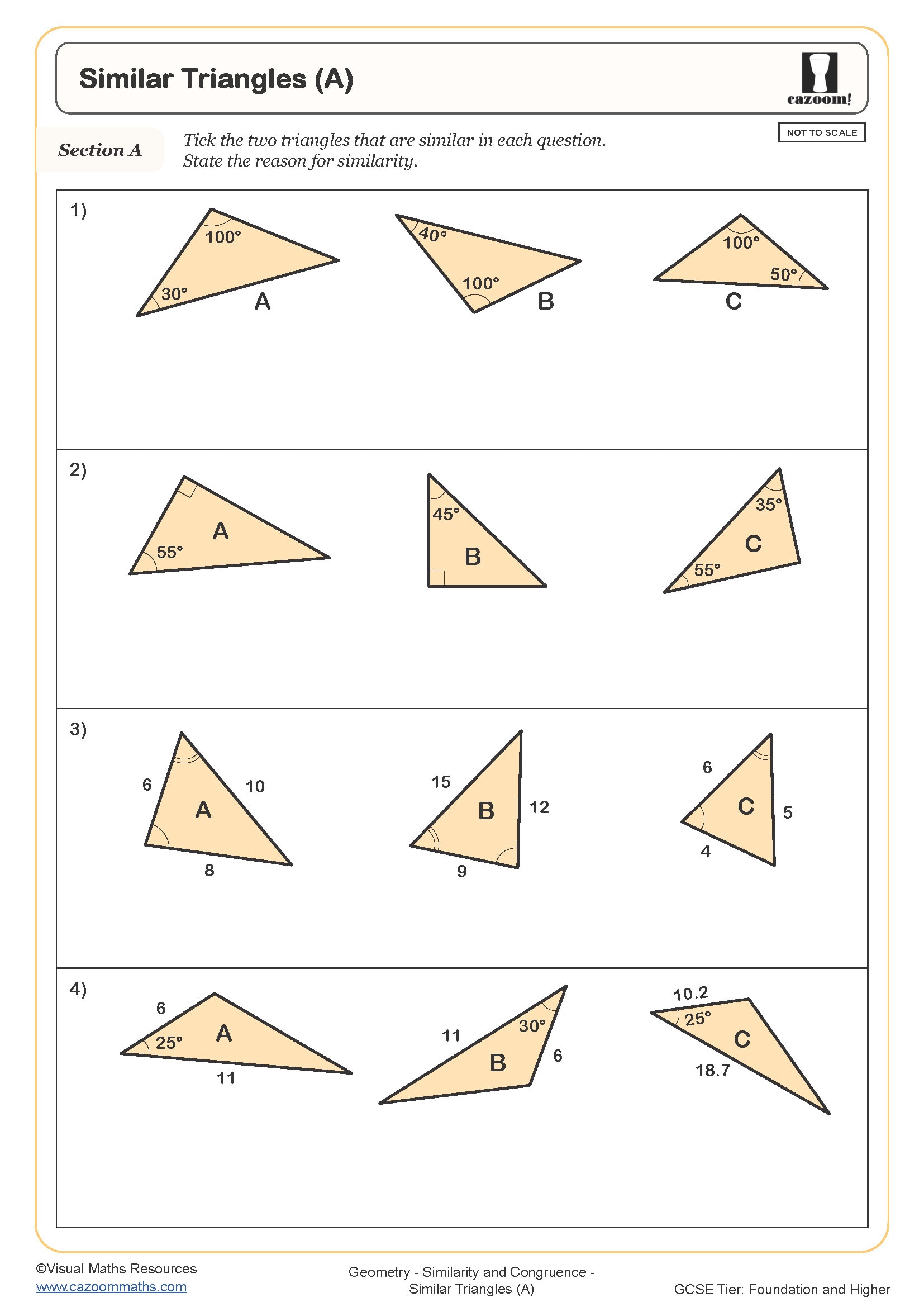
Similar Triangles (B)
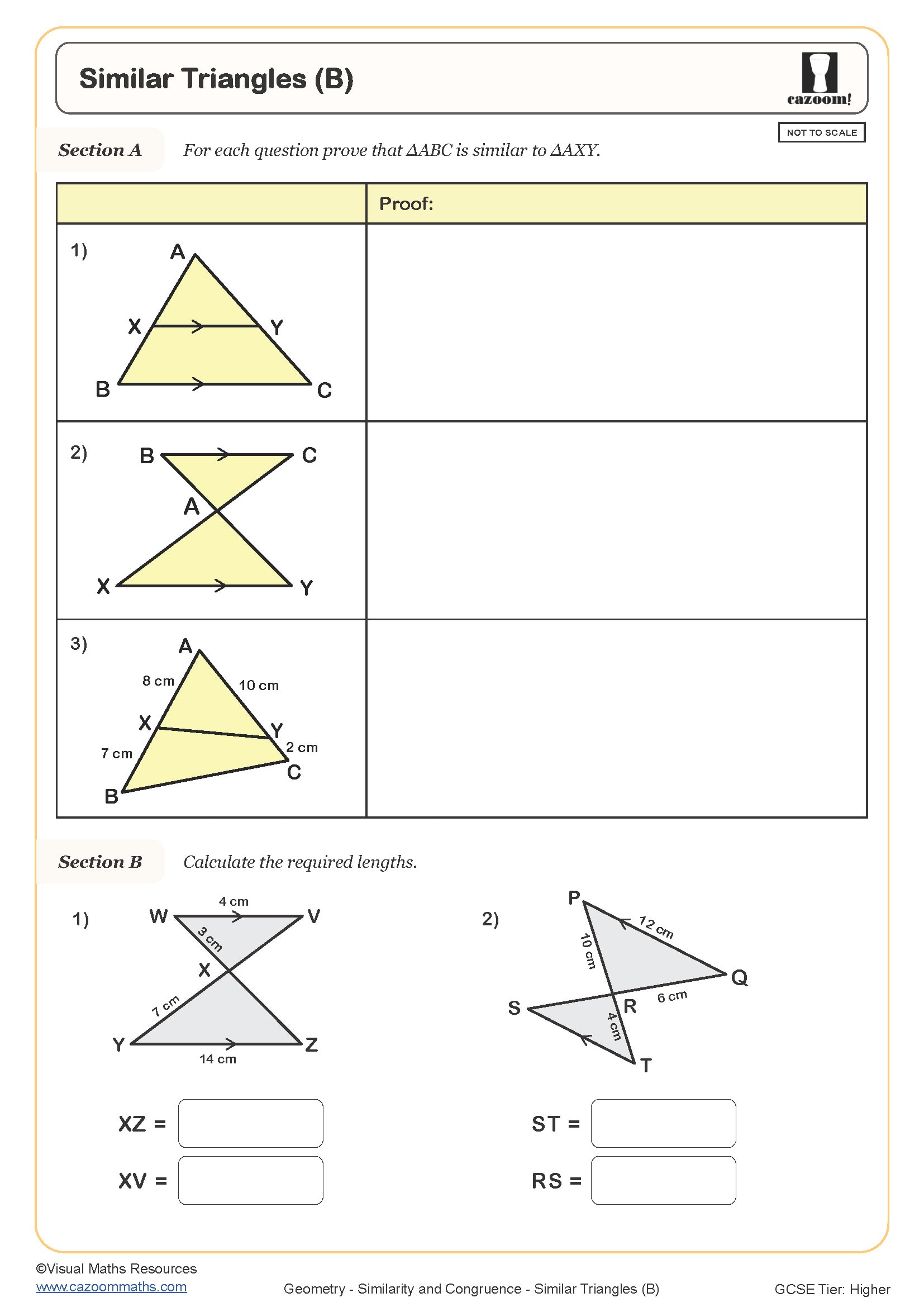
Translations - from Column Vectors
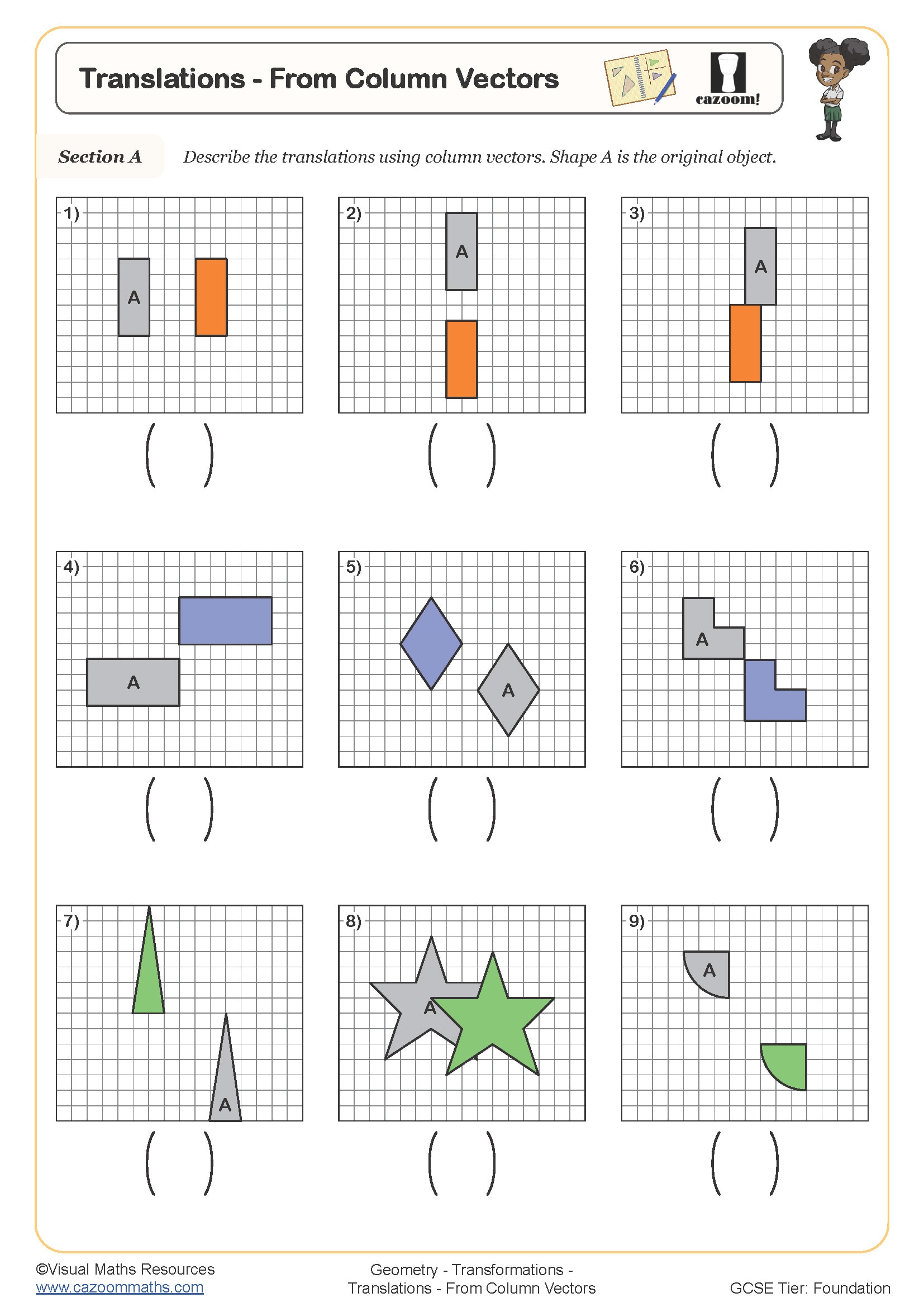
All worksheets are created by the team of experienced teachers at Cazoom Maths.
Geometry Worksheets PDF Downloads That Actually Make Sense
Look, I've wasted hours hunting through terrible resources online. Half the geometry worksheets out there are either too easy (we're not in Year 8 anymore) or ridiculously hard with no explanation whatsoever. These ones hit that sweet spot - challenging enough for Year 11 maths topics but not soul-destroying. Plus, the solutions actually show you the thinking process instead of just giving you the answer. Because let's be honest, that's where students get stuck.
Essential Year 11 Maths Topics Covered in These Geometry Worksheets
We've packed quite a lot into these geometry year 11 resources! The progression moves from foundational coordinate geometry through to complex circle theorems and trigonometric proofs. Students particularly love the real-world applications (finally, maths that makes sense!). You'll find comprehensive coverage of angles in circles, Pythagoras in 3D, sine and cosine rules, plus those tricky locus problems that always seem to appear on exam papers.
Topics covered in our geometry worksheets include:
• Area and Perimeter
• Bearings Scale and Loci
• Circles
• Compound Measures
• Coordinates
• Lines and Angles
• Pythagoras
• Similarity and Congruence
• Transformations
• Trigonometry
Why Year 11 Students Desperately Need Targeted Geometry Practice
Here's what I've noticed after teaching geometry for years: students who regularly practice with structured worksheets perform significantly better on assessments. The jump from GCSE to A-Level geometry is substantial, and consistent practice builds that essential muscle memory. These Year 11 maths methods worksheets target specific exam techniques while reinforcing fundamental concepts.
Key benefits our students experience:
• Improved spatial reasoning and visualisation skills
• Stronger foundation for A-Level mathematics progression
• Enhanced problem-solving confidence in exam conditions
• Better understanding of geometric proof techniques
• Solid preparation for university-level mathematics
Real-World Applications Where Students Actually Use Geometry Skills
Students always ask, "When will I ever use this?" – and honestly, geometry skills pop up everywhere! These year 11 maths topics connect directly to engineering, architecture, computer graphics, and even sports science. We've seen students apply circle theorem knowledge in physics coursework and use trigonometry for geography fieldwork projects. It's actually quite satisfying when they realise geometry isn't just abstract theory.
Specific applications students encounter:
• Engineering design and structural calculations
• Computer game development and 3D modelling
• Architecture and construction project planning
• Navigation systems and GPS technology
• Medical imaging and diagnostic equipment
• Sports performance analysis and biomechanics